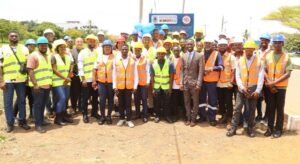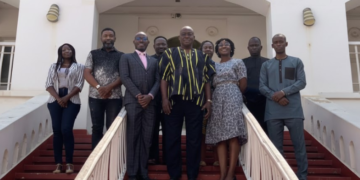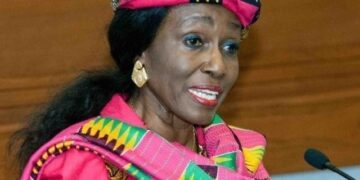ACCRA, Oct 1 (The African Portal) – Six women have graduated from Ghana’s National Association for Heavy-Duty Equipment Operators (NAHEOG) Mobile Crane and Forklift Training Programme – a first for the male-dominated industry.
The women joined 44 other trainees from West and Central Africa for the 10-week course at the Regional Maritime University in Accra. Their graduation is being celebrated as a sign of shifting cultural norms in technical and vocational education across the region.
“These women are trailblazers,” said Dominic Kofi Eyiah, President of NAHEOG. “They are not only trained professionals now, but also role models who will inspire other young women to consider careers in technical and industrial fields.”
Clad in hard hats and overalls, the graduates were met with applause from families and industry representatives. Their achievement, organisers say, is not just personal but symbolic of efforts to close the gender gap in skilled professions.
The programme, now in its eighth edition, is designed to tackle skills shortages in construction, industry and maritime sectors. NAHEOG and RMU said they are scaling up the initiative to meet rising demand for certified operators.

Mr Eyiah used the occasion to stress the importance of equipment operators in national development. “You are the silent builders of progress—driving the machines that shape our cities, connect our communities, and power our economy,” he told the graduates.
He also announced progress on policy reforms, including halting a proposed 50% rise in port handling charges for heavy machinery and securing exemptions for crane operators from certain Minerals Commission regulations. NAHEOG is now pushing for an Operator Biometric Authorisation System to link equipment use to licensed operators.
Deputy Education Minister Clement Apaak, represented by Dr Issahaque Munawaru, urged more investment in technical education, saying women’s participation in such fields was critical to Africa’s transformation.
For the six pioneering women, the milestone marks the start of careers that challenge long-standing stereotypes.
“Remain adaptable, embrace innovation, and always operate with integrity,” Mr Eyiah told the group. “Never stop learning. The future of this industry depends on skilled, ethical, and forward-thinking professionals like you.”






